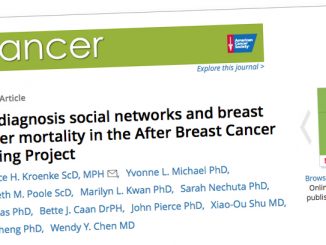Ne umquam pars pro toto (Plinius). Can anyone remember a bit of Latin? This quotation was used in a slide presentation given a few weeks ago by Louis Denis, urologist and prostate cancer patient, at the congress of the European Association of Urology (EAU), where he was representing the patient coalition Europa Uomo.
It means “never consider only a part for the totality”, and Louis Denis’ message was: “Do not focus only on our prostates, do not forget that the prostate belongs to a man.” I believe there is no more important message to cancer doctors and nurses. We are so influenced by our training, by the anatomic mentality, by the so-called organ- site approach, that we seem inevitably to keep confounding the part for the whole.
Imaging (radiology but also nuclear medicine) is focusing more and more on each single ‘lesion’, and is putting a lot of effort into magnifying the neoplastic findings to find out everything about them, leaving little time and space to study what else we can see – How is the environment that ‘contains’ the tumour?
We surgeons admittedly have a very bad habit of planning our activity in terms of ‘pars’: What is the programme for the theatre tomorrow? We have one thyroid, two breasts and one colon, sir.
Advocates of complementary and integrative medicine have a point there, and it is time to discuss it openly. Our patients are engaging with proponents of more holistic approaches to care. We need to do the same, in a way that is both scientific and open-minded, if we are to help move the evidence base forward and give patients what they need to make truly informed decisions.
This topic is often the elephant that calmly ruminates in our outpatients room: I understand we need to kill as many cancer cells as possible, says the person in front of us, and I accept we have to cut, irradiate and bombard this enemy which is growing in me, but what can I do for the rest of my body, for my pain, my constipation, my dry skin, not to mention my chronic insomnia, my anxiety, my depression?
No question but we have to remain firm against selling any false illusions, and to challenge unproven methods when presented as an alternative to evidence-based cancer treatments.
But holistic care should not remain a term to be used only in congresses and then forgotten in our daily practice. Holistic care is a challenge, it is demanding, tiring and difficult, but it is the only way to practise oncology with dignity and success.





